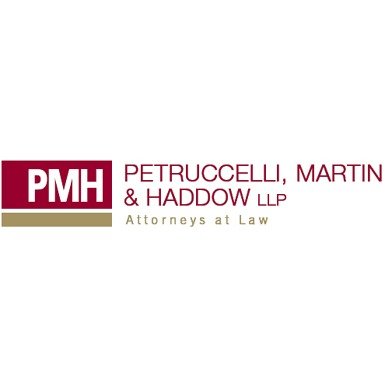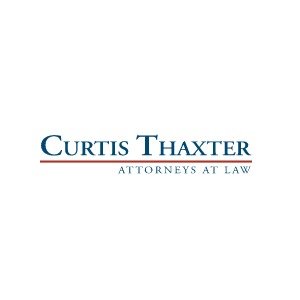Best Structured Finance Lawyers in Maine
Share your needs with us, get contacted by law firms.
Free. Takes 2 min.
Or refine your search by selecting a city:
List of the best lawyers in Maine, United States
About Structured Finance Law in Maine, United States
Structured finance involves complex financial transactions that are designed to manage risk and finance large-scale projects or assets. In Maine, structured finance typically covers activities such as asset-backed securities, collateralized debt obligations, syndicated loans, securitization of receivables, and other customized funding arrangements. These transactions often require tailored legal and regulatory solutions due to their complexity, and they interact with both federal and state financial laws. Maine financial institutions, investment funds, and businesses use structured finance to access capital, manage risk, and facilitate unique investment opportunities.
Why You May Need a Lawyer
Structured finance transactions are intricate and can involve substantial legal, regulatory, and business risks. You may require a lawyer if you are:
- Setting up or participating in a securitization transaction in Maine
- Originating or investing in asset-backed securities
- Involved in project financing, especially for large developments like energy, real estate, or infrastructure ventures
- Negotiating with banks or financial institutions for complex financing arrangements
- Needing to structure or restructure debt to improve liquidity or risk management
- Ensuring compliance with Maine state laws as well as federal securities regulations
- Addressing tax implications associated with structured finance vehicles
- Responding to disputes or litigation related to structured finance contracts or instruments
Local Laws Overview
Maine's structured finance landscape is shaped by a variety of state statutes, administrative guidelines, and judicial precedents, in addition to federal regulations. Some important facets include:
- Uniform Commercial Code (UCC): Maine has adopted the UCC, which governs secured transactions, sales of receivables, and the perfection or priority of security interests in structured finance deals.
- Securities Regulation: Maine’s Office of Securities regulates offerings involving asset-backed and other complex securities, and ensures compliance with both state blue sky laws and federal securities laws.
- Lending Laws: The Maine Revised Statutes contain provisions related to lending practices, usury laws, and contractual obligations that can impact the structure of financial deals.
- Banking and Insurance Regulations: Transactions involving state-chartered banks or insurance companies may require additional compliance with Maine Bureau of Financial Institutions and Bureau of Insurance rules.
- Tax Considerations: Maine’s state tax laws and Department of Revenue guidance can affect the structure and outcome of finance transactions, particularly through transfer, franchise, and income taxes.
- Consumer Protection Laws: Structured finance transactions that touch on consumer assets may trigger Maine consumer protection regulations, requiring careful review.
Frequently Asked Questions
What is structured finance?
Structured finance refers to complex financial transactions designed to facilitate large investments, manage risk, or provide alternative funding by using collateral, pooling assets, or creating tailored financial products.
Who typically uses structured finance in Maine?
Structured finance is used by lenders, investors, businesses, real estate developers, and sometimes government entities looking to leverage or monetize their assets in Maine.
How does Maine regulate structured finance transactions?
Maine regulates structured finance primarily through the Office of Securities, Bureau of Financial Institutions, and laws such as the Uniform Commercial Code and state-level securities statutes.
Are there specific Maine licensing requirements for structured finance?
While there is no single license for structured finance, participants may need to comply with licensing for securities activities, lending, or servicing, depending on the transaction structure.
Can out-of-state entities participate in structured finance deals in Maine?
Yes, but out-of-state entities must comply with Maine registration, tax, and compliance requirements, and may need to designate agents for service of process within the state.
What are some common legal risks in structured finance?
Legal risks include regulatory compliance failures, documentation or disclosure errors, misaligned interests between parties, priority disputes, or resulting litigation from contract breaches or defaults.
How do Maine’s consumer protection laws affect structured finance?
If the underlying assets involve consumer receivables or loans, transactions must address Maine’s consumer protection statutes, including transparency and fair lending requirements.
What tax issues should I be aware of in these transactions?
Tax concerns in Maine can include sales and use tax, income tax, transfer tax, and considerations about how structured finance affects a business’s or individual’s tax liabilities.
Do federal laws override Maine’s structured finance laws?
Federal laws related to securities and banking usually take precedence, but Maine laws still govern aspects like statewide licensing, registration, and some disclosure requirements.
How can a structured finance lawyer help me?
An attorney can draft and review documents, ensure compliance, facilitate negotiations, tackle regulatory issues, structure deals efficiently, and represent you in disputes or audits.
Additional Resources
If you are seeking more information or legal advice on structured finance in Maine, these resources may be helpful:
- Maine Office of Securities - Provides information on state securities law, registration, and enforcement
- Maine Bureau of Financial Institutions - Regulates state-chartered banks and financial institutions
- Maine Bureau of Insurance - Oversees insurance company involvement in finance transactions
- Maine Department of Administrative and Financial Services - Offers guidance on state tax issues
- Maine State Bar Association - Can assist in locating experienced financial law attorneys
- Legal Aid Organizations in Maine - Some provide resources for small businesses or lower-income individuals needing guidance on financial matters
Next Steps
If you believe you need legal guidance for a structured finance matter in Maine, consider the following steps:
- Gather all relevant documents and details about your contemplated or existing transaction
- Identify the parties involved, the type of assets or securities, and your primary objectives
- List out any immediate concerns, deadlines, or regulatory communications you have received
- Consult with an attorney who specializes in structured finance or financial services law in Maine for an initial assessment
- Ask about the attorney’s experience with similar transactions, their approach to risk mitigation, and their familiarity with both state and federal regulations
- Work collaboratively with your legal advisor to plan the transaction, address compliance, and protect your interests at every stage
Lawzana helps you find the best lawyers and law firms in Maine through a curated and pre-screened list of qualified legal professionals. Our platform offers rankings and detailed profiles of attorneys and law firms, allowing you to compare based on practice areas, including Structured Finance, experience, and client feedback.
Each profile includes a description of the firm's areas of practice, client reviews, team members and partners, year of establishment, spoken languages, office locations, contact information, social media presence, and any published articles or resources. Most firms on our platform speak English and are experienced in both local and international legal matters.
Get a quote from top-rated law firms in Maine, United States — quickly, securely, and without unnecessary hassle.
Disclaimer:
The information provided on this page is for general informational purposes only and does not constitute legal advice. While we strive to ensure the accuracy and relevance of the content, legal information may change over time, and interpretations of the law can vary. You should always consult with a qualified legal professional for advice specific to your situation.
We disclaim all liability for actions taken or not taken based on the content of this page. If you believe any information is incorrect or outdated, please contact us, and we will review and update it where appropriate.
Browse structured finance law firms by city in Maine
Refine your search by selecting a city.












